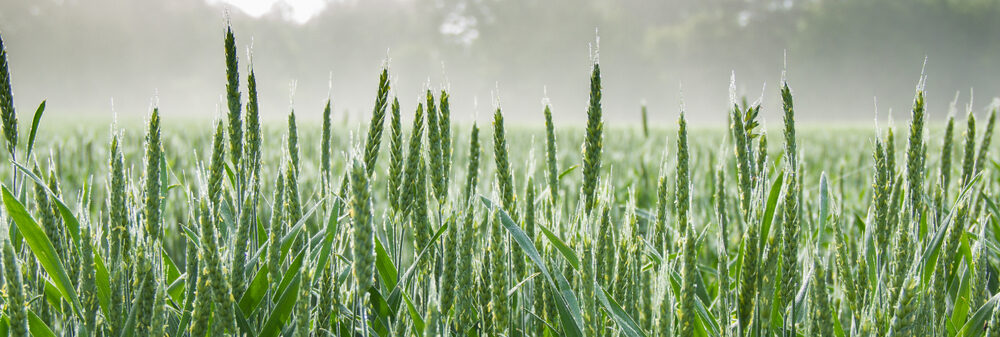Agriculture is an enormously important industry in the Alabama economy. It produces about $70 billion in economic impact and accounts for roughly 1 in every 4.6 jobs. Alabama’s ties to agriculture are deep and historic, and the prominence of farming in the state is one reason why so many people who live and work here are concerned about their exposure to a weedkiller that’s commonly used in farming, “Roundup.”
Roundup, which is sold by Monsanto and its parent company, Bayer AG, is the subject of tens of thousands of class-action lawsuits claiming that, in addition to killing plants like weeds, the product also causes cancer.
To date, three trials over this connection have ended in verdicts in favor of the plaintiffs to the tune of a combined $2 billion in settlements. While all of those were reduced on appeal, the losses were enough to compel Bayer to issue offers to settle current cases and head off future ones.
What should Alabama residents know about Roundup, the potential negative health implications of exposure, and their legal rights to seek compensation if they used it and got sick?
What Does Roundup Do?
Today, Roundup is known as the most commercially successful weedkiller in history, but the active ingredient in Roundup had a different beginning altogether. Let’s review Roundup’s background and see how commonly it is used in Alabama farming.
History of Roundup
Roundup brand weedkillers all include a chemical called glyphosate as their active ingredient. For years, glyphosate had been a popular solvent used to clear calcium deposits from commercial plumbing and heating equipment.
But a discovery by a Monsanto researcher led to the company patenting glyphosate as an herbicide, and in 1974, Monsanto began marketing a glyphosate-based formulation as Roundup. The company has gone on to develop many products in the Roundup line, as well as developing Roundup Ready seed, which enables farmers to spray their fields without worry to their crops.
It is believed that the key to glyphosate’s efficacy against weeds is that it attacks an enzyme that plants need to continue growing; without it, they soon wither and die.
Roundup & Alabama Agriculture
Roundup’s popularity means it is used widely in agriculture, but also in residential lawn care and commercial landscaping. But given the sheer scale of the agricultural industry in the U.S., farming is by far the biggest user of glyphosate.
How widely used is it in Alabama and across the country? According to the U.S. Geological Survey, about 3.8 billion pounds of glyphosate have been used on U.S. farms since 1992.
Let’s take a closer look at farming and glyphosate use in Alabama:
- Since 1992, about 32 million pounds of glyphosate have been used in Alabama agriculture, which is below average.
- In 2017, the most recent year for available data, about 1.7 million pounds of glyphosate were used in Alabama agriculture. Use of glyphosate in Alabama farming has increased by nearly 70% since 2000.
- Glyphosate is the most widely used pesticide or herbicide in Alabama farming, selling more than double its top competitor.
- Cotton accounts for the biggest percentage of glyphosate Alabama farmers have used — about 38%, while soybeans contributed nearly 30%, and corn 21%. Wheat accounts for another 3%.
- Alabama farmers produced about 825,000 bales of cotton in 2020, making them the fifth largest producers in the country. They also generated about 54 million bushels of corn and 10.4 million bushels of soybeans, both of which rank 25th in the country in terms of output.
Is Roundup Dangerous?
The dangers of Roundup are in dispute. Monsanto and German pharmaceutical giant Bayer, which purchased the St. Louis-based Monsanto a few years ago, contend that the product is safe, but evidence is mounting to the contrary.
Most recently, a University of Washington study found that exposure to Roundup increases the risk of a type of cancer, non-Hodgkin lymphoma, by as much as 41%.
The majority of plaintiffs in the estimated 125,000 lawsuits over Roundup have been diagnosed with non-Hodgkin lymphoma (NHL), and the plaintiffs who have won verdicts all have this type of cancer.
Non-Hodgkin Lymphoma
Lymphomas like NHL are cancers that form when the body’s white blood cells grow out of control. Several types of lymphoma are classified under the NHL label, but they are different from another well-known type, Hodgkin lymphoma, often called “Hodgkin’s disease.”
NHL accounts for about 4% of all cancer cases, and the American Cancer Society estimates that about 82,000 Americans will be newly diagnosed with it in 2021. Tragically, about 21,000 people per year die from this type of cancer.
An Alabama resident who used glyphosate or Roundup should watch out for some common symptoms, though signs vary from person to person:
- Chest pain
- Cough
- Chills
- Easy bruising
- Fatigue
- Fever
- Frequent, severe infections
- Night sweats
- Shortness of breath
- Swollen abdomen
- Swollen lymph nodes
- Weight loss
Roundup users in Alabama who have noticed any of these physical symptoms, especially if they’ve experienced more than one, should contact their doctors to have a complete evaluation. NHL may not be a death sentence; if it is detected early, survival rates are high, which is why it’s so important to speak with your doctor if you used Roundup and are feeling any of the symptoms above.
Roundup’s Regulatory Status
Roundup’s legality in the U.S. does not appear to be changing anytime soon, at least not on the federal level. As recently as 2020, the U.S. Environmental Protection Agency has still claimed that the chemical is not carcinogenic.
However, this is anything but a consensus view. In fact, the states of California and New York both have determined that glyphosate is dangerous, and barring a lawsuit, New York is expected to outlaw Roundup use on state-owned grounds at the end of 2021. The World Health Organization’s cancer research agency says glyphosate is a probable carcinogen, and many countries around the world have banned or limited its use.
What’s the Current Status of Roundup Litigation?
Three of the estimated 125,000 cases filed to date have completed the trial process. In each case, jury members were convinced of the connection between Roundup and the plaintiffs’ cancer diagnoses. They awarded a total of $2 billion in damages, but awards were lowered upon appeal.
Though Bayer has had some victories in the appeals process, in 2020 the company proposed setting aside $10 billion to end most of the cases it’s currently facing as well as $2 billion to fund future settlements.
Neither of those settlements have been formally approved by the judges handling class-action lawsuits and multijurisdictional litigation, though it has been reported that many plaintiffs have preliminarily accepted Bayer’s settlement offer in their cases. At least one hearing is scheduled for summer 2021 on the proposed $2 billion settlement for future claims.
Labeling Class-Action Settlement
Separately, a class-action settlement has been reached over allegations that Roundup’s product label misled consumers to purchase it because they believed it was safe.
A $40 million settlement was approved in that case. Alabama residents who bought Roundup after Feb. 13, 2015 may be eligible to receive up to $90 in compensation because of wording on the product label indicating that because it targets a plant enzyme, it can’t harm people or pets.
How Much Can I Get From a Roundup Lawsuit in Alabama?
The potential jury awards or settlements that will be possible with future Roundup lawsuits are difficult to predict for a few reasons.
First, all the jury verdicts that have been reached so far have been reduced upon appeal, and none of the plaintiffs have yet received any money. Bayer remains in the appeals process in two of those three cases.
Second, both settlement offers are still being negotiated, and progress so far has gone in fits and starts. As we said, though, at least one hearing is scheduled in 2021 on the $2 billion proposal, but there has been no firm word on when settlement funds will be approved or distributed.
However, we do know from the company’s settlement proposal that it is planning to establish a system for determining how much each victim will receive. Estimates indicate that the average award will be about $165,000, with factors like age and extent of cancer being among the factors that could increase or decrease the award amount.
Survivors of victims who have already lost their lives to NHL are expected to receive the highest awards, particularly if the deceased left behind a spouse or underage children when they died.
Finally, the proposals call for approved settlements to go to U.S. citizens, which means that migrant workers who have been exposed to Roundup may be ineligible for settlement funds.
What Should I Do if I Have Been Affected by Roundup?
Alabama residents who have used any type of Roundup or glyphosate herbicide should stop using it as soon as possible. If they are using it as part of their jobs, their employers should be able to provide them with a suitable alternative that’s safe.
For individuals who used Roundup and have since been diagnosed with non-Hodgkin lymphoma, there is still time to seek justice in court. No settlement proposals have been finalized, but they are in negotiations, which means that once they are finalized, your time to file a lawsuit may be limited.
The best way to ensure you can seek justice is to consult with an expert Roundup class-action law firm in Alabama, and we can help connect you with a firm in your area.
Consultations are usually free, and most people don’t pay legal fees unless they win their cases.





